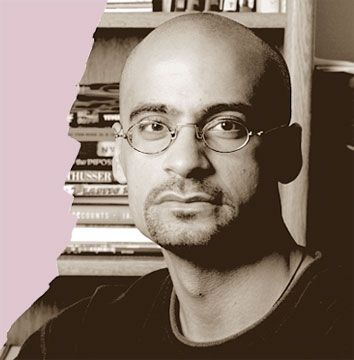
 
Junot Diaz, born in Santo Domingo, Dominican Republic is a writer and
professor at MIT (Massachusetts Institute of Technology). He is the
author of Drown and The Brief Wondrous Life of Oscar Wao which won the
John Sargent Sr. First Novel Prize, the National Book Critics Circle
Award, the Anisfield-Wolf Book Award, the Dayton Literary Peace Prize
and the 2008 Pulitzer Prize.
He has also received a Eugene McDermott Award, a fellowship from the
John Simon Guggenheim Memorial Foundation, a Lila Acheson Wallace
Readers Digest Award, the 2002 Pen/Malamud Award, the 2003 US-Japan
Creative Artist Fellowship from the National Endowment for the Arts, a
fellowship at the Radcliffe Institute for Advanced Study at Harvard
University and the Rome Prize from the American Academy of Arts and
Letters.
His fiction has appeared in The New Yorker, African Voices, Best
American Short Stories, in Pushcart Prize XXII and in The O’Henry Prize
Stories 2009. He is the fiction editor at the Boston Review and the
Rudge (1948) and Nancy Allen professor at the Massachusetts Institute of
Technology.
The stories in Drown focus on the teenage narrator’s impoverished,
fatherless youth in the Dominican Republic and his struggle adapting to
his new life in New Jersey. Diaz also published a Spanish translation of
Drown, entitled Negocios.
The arrival of his novel - The Brief Wondrous Life of Oscar Wao,
which appeared eleven years after Drown - in 2007, prompted a noticeable
re-appraisal of Diaz’s earlier work. Drown became widely recognized as
an important landmark in contemporary literature - ten years after its
initial publication - even by critics who had either entirely ignored
the book or had given it poor reviews. The Brief Wondrous Life of Oscar
Wao was also selected by Time and New York Magazine as the best novel of
2007.
As for his techniques he has not been a research buff simply because
he has already known what to look for, he claims in an interview. He is
known to mix hard core research with historical fact. Sci-fi and fantasy
genres play a huge role in The Brief Wondrous Life of Oscar Wao. He
claims that - in spite of winning the much sort after Pulitzer Prize -
writing for him is difficult.
He has been described as an author alive with passion for his roots
and for language. He doesn’t believe in taboo, using words like nigger
without any restraint and allusions to child rape. |

